A group of twenty seasoned chess players gathered in Paris for a unique challenge: facing off against a mere 8-year-old boy. Little did they know, they were about to be outplayed by Samuel Reshevsky, a prodigy in the making. The New York Times recounted this remarkable event, which took place on May 17, 1920. Reshevsky, with his unassuming demeanor, moved from board to board, dismantling the strategies of his opponents with ease.
Samuel Reshevsky's journey into the world of chess began at the tender age of 4. By the time he was 6, he was already engaging in simultaneous matches against adult players. His exceptional talent caught the attention of many, and by the age of 8, he was challenging formidable opponents on the chessboard. In the wake of World War I, Reshevsky and his family made the decision to immigrate to the United States in 1920, marking the beginning of a new chapter in his chess career.
At the age of 9, Samuel Reshevsky embarked on his first American simultaneous exhibition, facing off against 20 officers and cadets at the prestigious Military Academy at West Point. Remarkably, he emerged victorious in 19 games and settled for a draw in one.
Throughout his tour across the country, young Reshevsky displayed his remarkable talent, engaging in over 1,500 games in simultaneous exhibitions. Despite his tender age, he only suffered defeat in 8 games, showcasing his exceptional skill and strategic prowess on the chessboard. However, his dedication to chess often came at the expense of traditional schooling. Consequently, his parents found themselves entangled in legal proceedings in Manhattan Children's Court, accused of improper guardianship.
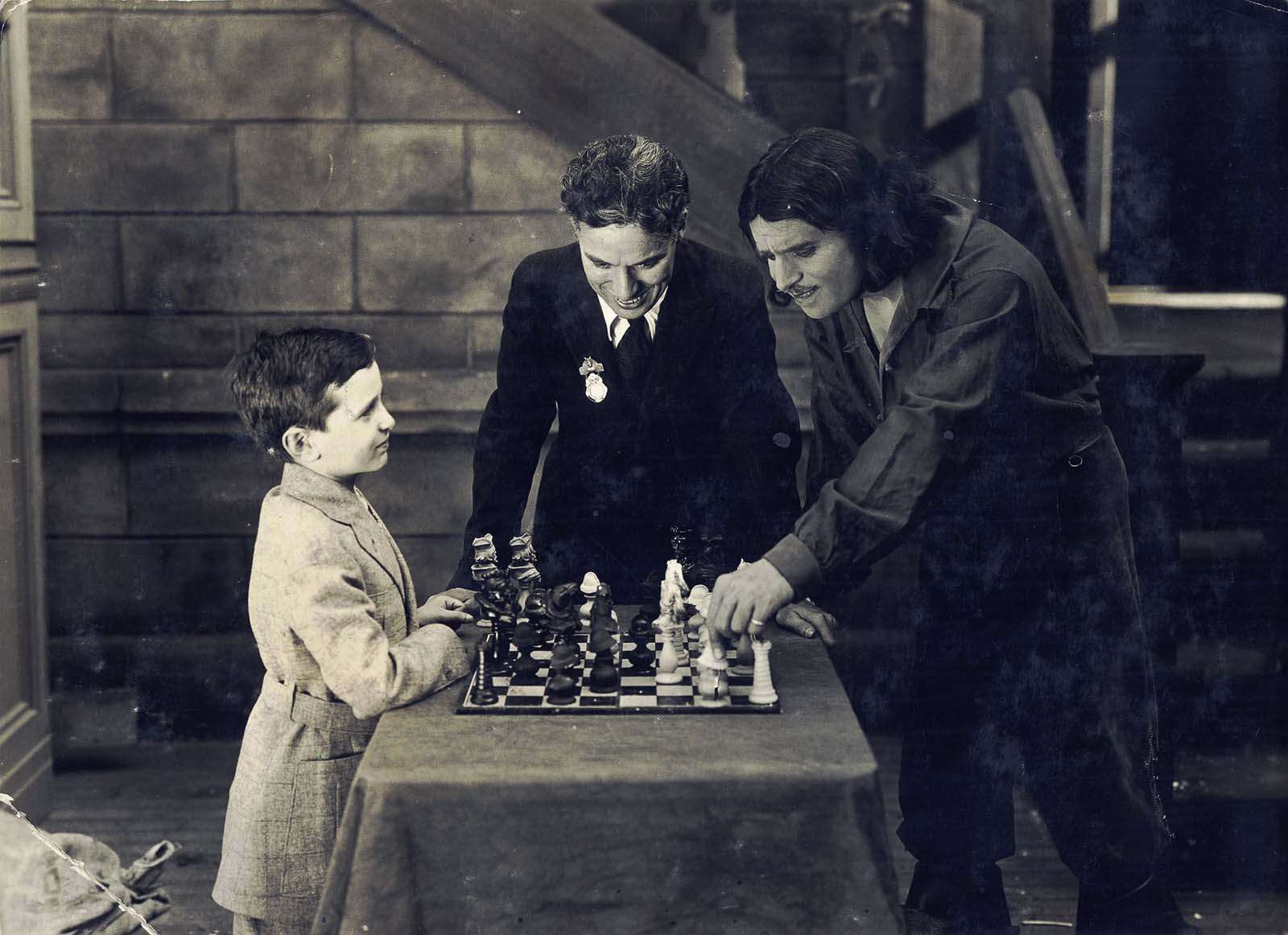
Samuel Reshevsky's chess journey took an unconventional turn as he opted to pause his competitive pursuits for seven years, spanning from 1924 to 1931, to focus on completing his secondary education. This hiatus allowed him to graduate from the University of Chicago in 1934, armed with a degree in accounting. Subsequently, he entered the workforce as an accountant, providing for both himself and his family through his profession.
Though Reshevsky never fully immersed himself in professional chess, his prowess on the board was undeniable. Renowned for his tenacity and strategic acumen, he excelled in positional play while also demonstrating a knack for brilliant tactical maneuvers when necessary. However, his approach wasn't without its risks; he often expended considerable time in the opening stages of a game, a strategy that occasionally left him with limited time for the subsequent moves, adding an element of pressure to his gameplay.
Samuel Reshevsky's unorthodox approach to chess occasionally left his opponents unsettled, yet it also left him vulnerable to errors at times. His insufficient preparation in the opening phase and his tendency to fall into time-pressure situations may have been contributing factors to his inability to ascend to the title of world champion, a sentiment he himself acknowledged in his book on chess upsets.
Reshevsky's strategic focus was evident in his preference for closed openings, particularly with the white pieces, often initiating with 1.d4. His mastery of the Exchange Variation of the Queen's Gambit Declined was particularly noteworthy. When facing formidable adversaries, he seldom opted for 1.e4. On the other hand, with the black pieces, Reshevsky displayed versatility, showcasing a diverse repertoire throughout his extensive career.
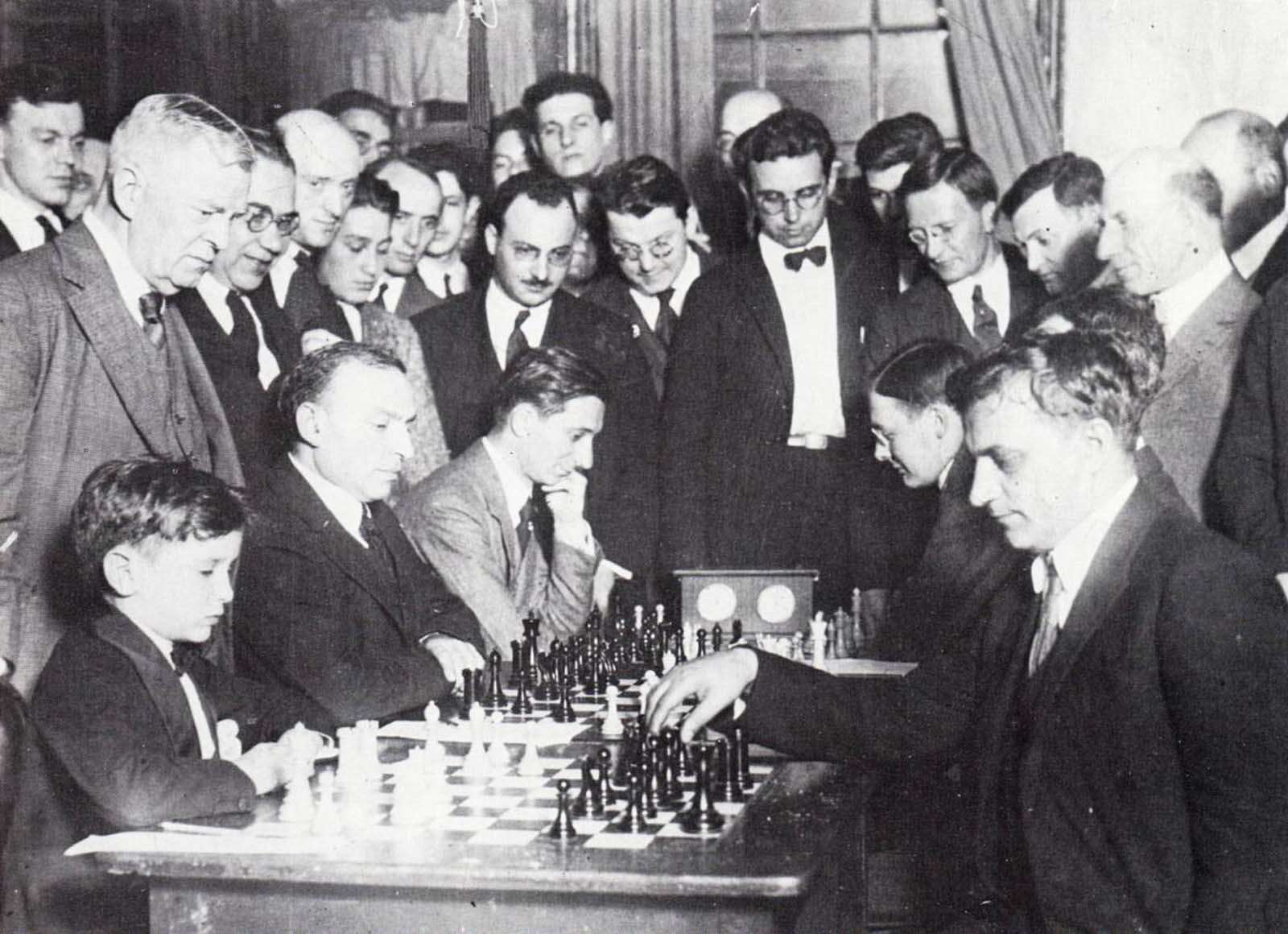
Arnold Denker, a prominent American Grandmaster, lauded Samuel Reshevsky for his exceptional tenacity and unwavering fighting spirit. Denker observed that Reshevsky consistently gained a crucial edge in his intense head-to-head encounters with his primary American adversary, Grandmaster Reuben Fine. This advantage proved pivotal, especially during the US Championships spanning from the mid-1930s to the early 1940s. Reshevsky's formidable presence on the chessboard posed significant challenges for Fine, ultimately preventing him from clinching victory in the US Championship.
Did Samuel Reshevsky lose to everyone?
It's a misconception perpetuated by internet memes that Samuel Reshevsky lost to everyone he played against. In fact, this couldn't be further from the truth. Reshevsky's exceptional talent was evident in the numerous victories he achieved, including all the games played in the simultaneous exhibition captured in the first picture. In his formative years, he engaged in approximately 1,500 games, experiencing defeat in only 8 of them.
The particular game depicted took place in Paris on May 17, 1920, where Reshevsky faced off against 20 opponents simultaneously. The event garnered attention, even receiving coverage from The New York Times, which provided a caption for the image.
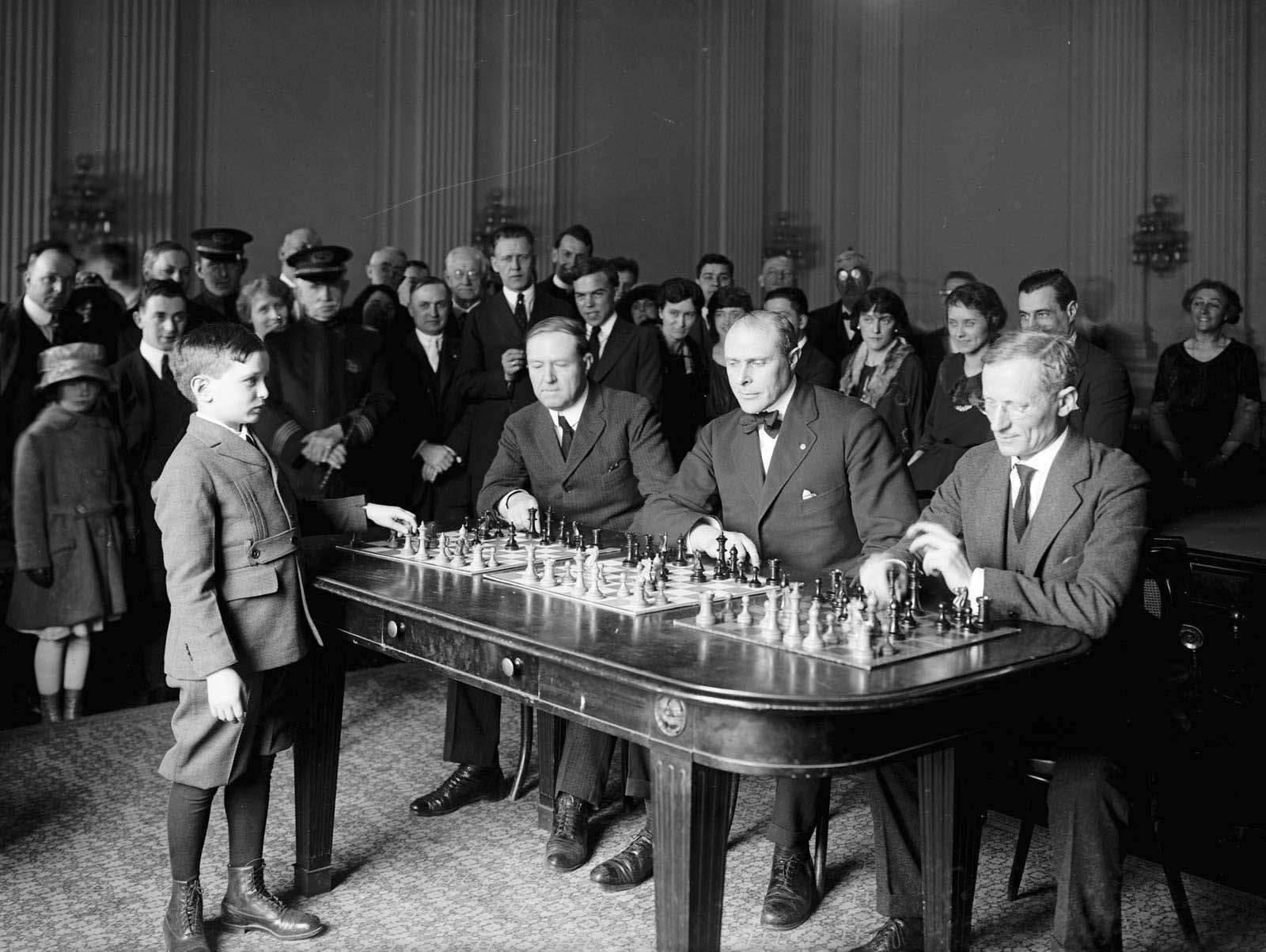
Twenty graybeards sitting in a square played chess yesterday in Paris against a very small boy 8 years old, and he beat them all. Among the graybeards were some of the best players in France, and one at least, whose boast it is that he drew with Capablanca, the Pan-American chess champion, but all their reputation availed them nothing against a frail child with a pale, thoughtful face who moved quietly from one board to another, reducing their most skillful plans and wiles to nothingness and mating them and mating them when they least expected it.
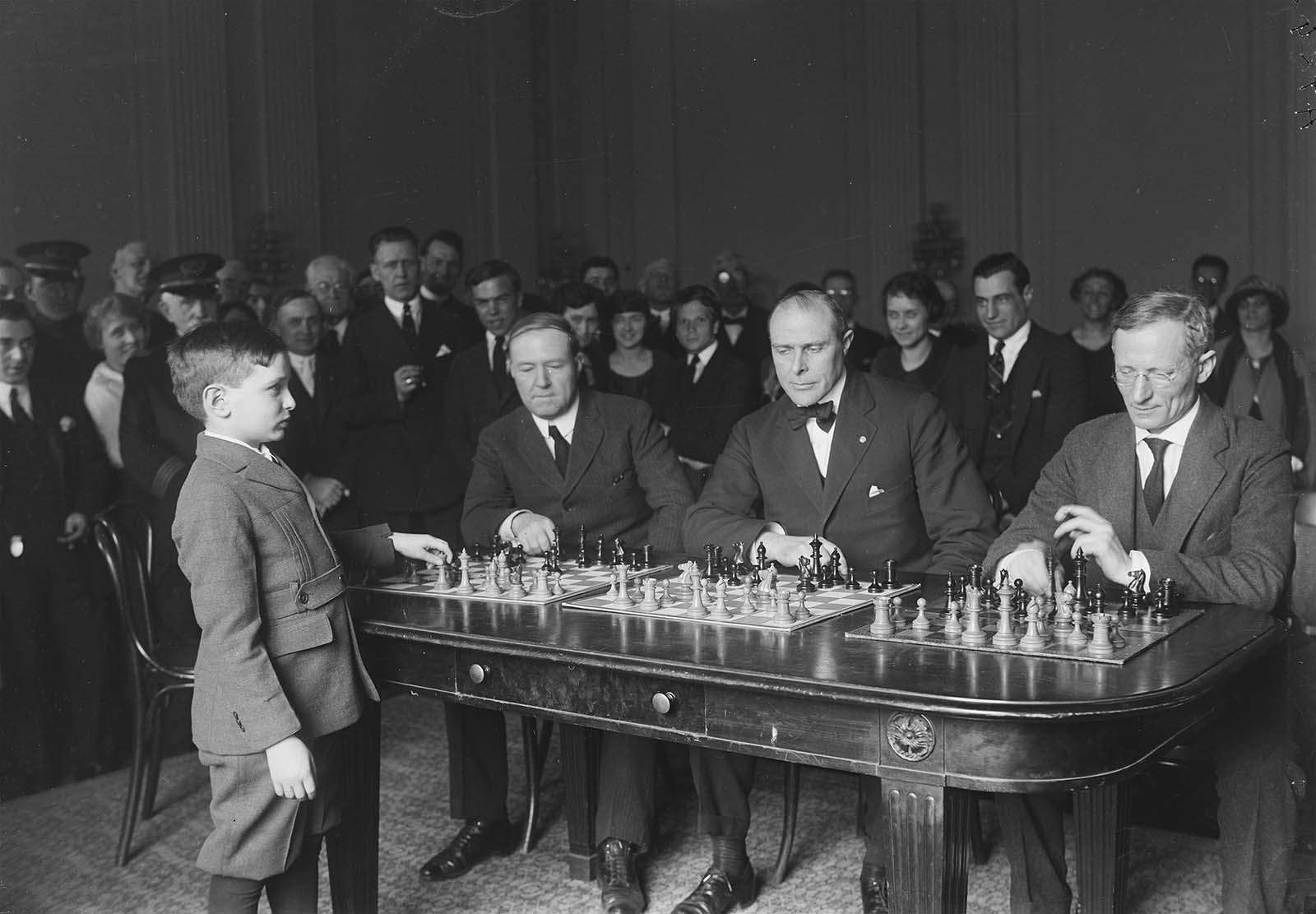
Samuel Reshevsky and Bobby Fischer
The dynamic between Samuel Reshevsky and Bobby Fischer, two titans of chess, was marked by rivalry and generational differences. Fischer burst onto the scene at the tender age of 14 during the 1957–58 US Championship, dominating the competition with eight consecutive victories. His remarkable success relegated Reshevsky, a seven-time former champion, to a secondary position among contenders.
The relationship between the two players was characterized by a notable lack of warmth, stemming from their significant age gap. Prior to the Buenos Aires 1960 tournament, Reshevsky famously quipped, "I would settle for 19th place—if Fischer placed 20th," highlighting the competitive tension between them.
In a surprising turn of events, Samuel Reshevsky emerged victorious in the Buenos Aires 1960 tournament, outperforming Bobby Fischer, who trailed behind. This marked the sole instance where Reshevsky finished ahead of Fischer in an international competition.
The following year, in 1961, Reshevsky engaged in a 16-game match against the reigning US Champion, Fischer. The match, held across New York and Los Angeles, garnered significant attention. Despite Fischer's rapid ascent in the chess world, the prevailing consensus favored Reshevsky's experience and skill.
After eleven intense games resulting in a deadlock, with each player securing two wins and seven draws, the match concluded prematurely due to a scheduling disagreement between Fischer and the match organizer, Jacqueline Piatigorsky. As a result, Reshevsky was awarded the winner's share of the prize fund.
In a separate incident during the 1967 Sousse Interzonal, Fischer's behavior toward Reshevsky raised eyebrows. Arriving 53 minutes late for their scheduled game (just seven minutes shy of automatic forfeiture), Fischer commenced play without offering any apology, showcasing a lack of sportsmanship.
In a dramatic turn of events, Reshevsky, under the impression that Fischer had withdrawn from the tournament, suffered a significant defeat in their game. Frustrated by what he perceived as an unfair circumstance, Reshevsky vehemently expressed his grievances to the tournament organizers.
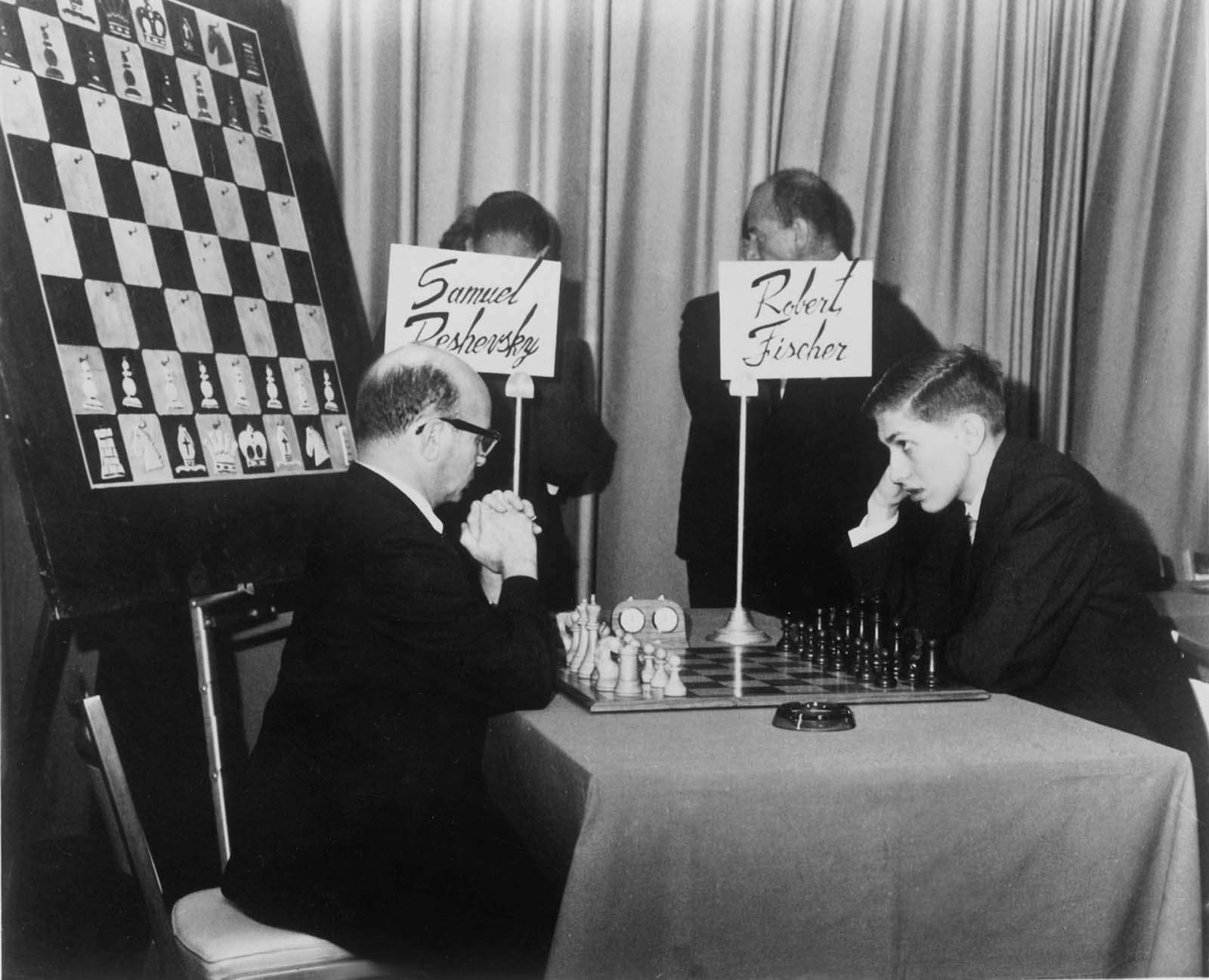
Despite this setback, Reshevsky managed to progress to the next stage of the competition. However, his rivalry with Fischer extended beyond individual games. Reshevsky declined to represent the US team in the Chess Olympiads of 1960, 1962, and 1966, as Fischer, holding the title of US champion, was selected for the top board ahead of him. It wasn't until 1970 that Reshevsky reluctantly agreed to participate, albeit on a lower board, marking the only occasion both players represented the same team.
Despite their contentious relationship, Fischer held a deep respect for Reshevsky, acknowledging him as a formidable opponent. In the late 1960s, Fischer went as far as to declare his belief that Reshevsky was the strongest player in the world during the mid-1950s, underscoring the magnitude of Reshevsky's talent and legacy in the chess world.
During a notable period in his career, Samuel Reshevsky achieved a significant milestone by defeating World Champion Mikhail Botvinnik in their four-game mini-match. This encounter served as the highlight of the US vs. USSR team match held in Moscow, showcasing Reshevsky's prowess on the chessboard.
However, it wasn't until 1968, at the age of 57, that Reshevsky faced defeat in a match where he had ample time for thorough preparation. This defeat came at the hands of Viktor Korchnoi during the first round of the Candidates tournament in Amsterdam.
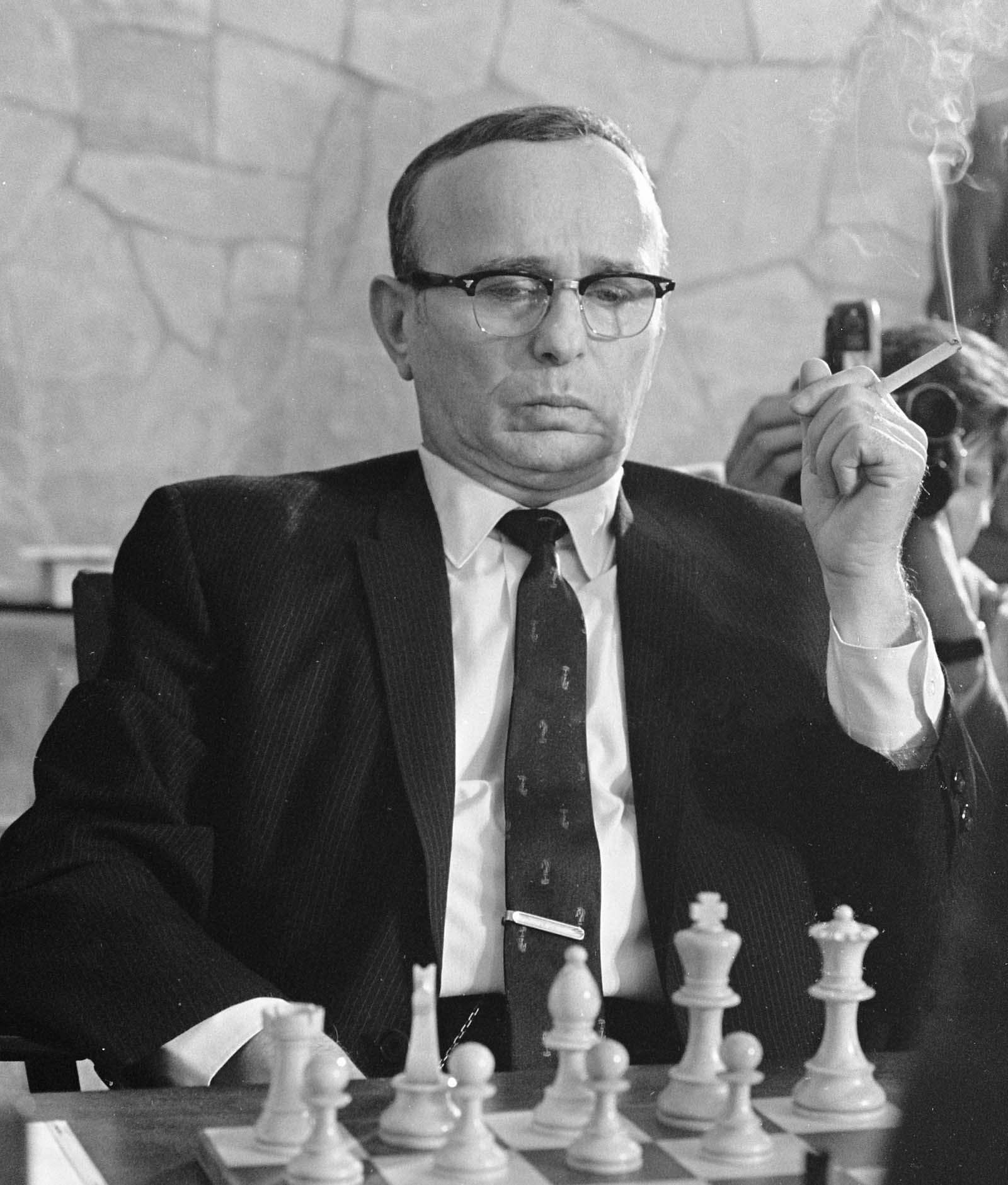
Scheduled for ten games, the match proved to be a formidable challenge for Reshevsky. Despite his experience, he failed to secure a victory, ultimately succumbing to Korchnoi with a final score of 5½–2½. This defeat marked a significant moment in Reshevsky's illustrious career, highlighting the changing landscape of chess and the emergence of a new generation of formidable opponents.Throughout his extensive chess career, Samuel Reshevsky faced off against an impressive lineup of opponents, including eleven of the first twelve world champions, spanning from Emanuel Lasker to Anatoly Karpov. Notably, he holds the distinction of being the only player to have encountered each of these champions. Although he crossed paths with Garry Kasparov, they never engaged in a match.
Reshevsky's remarkable talent was evident in his victories against seven world champions: Emanuel Lasker, José Raúl Capablanca, Alexander Alekhine, Max Euwe, Mikhail Botvinnik, Vasily Smyslov, and Bobby Fischer. These triumphs solidified Reshevsky's legacy as one of the most formidable competitors in the history of chess, showcasing his skill and strategic prowess on the grandest of stages.

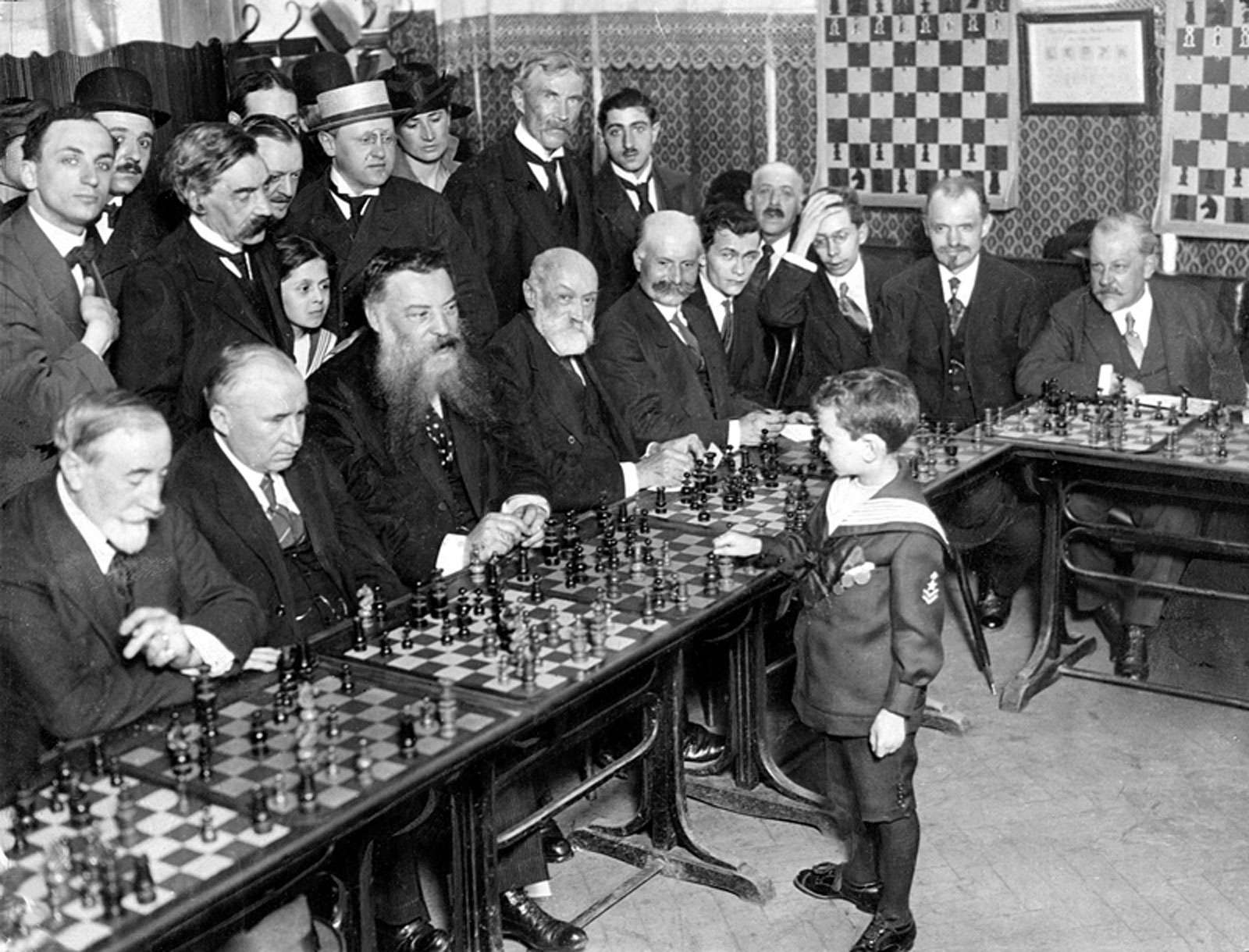








Be the first to comment